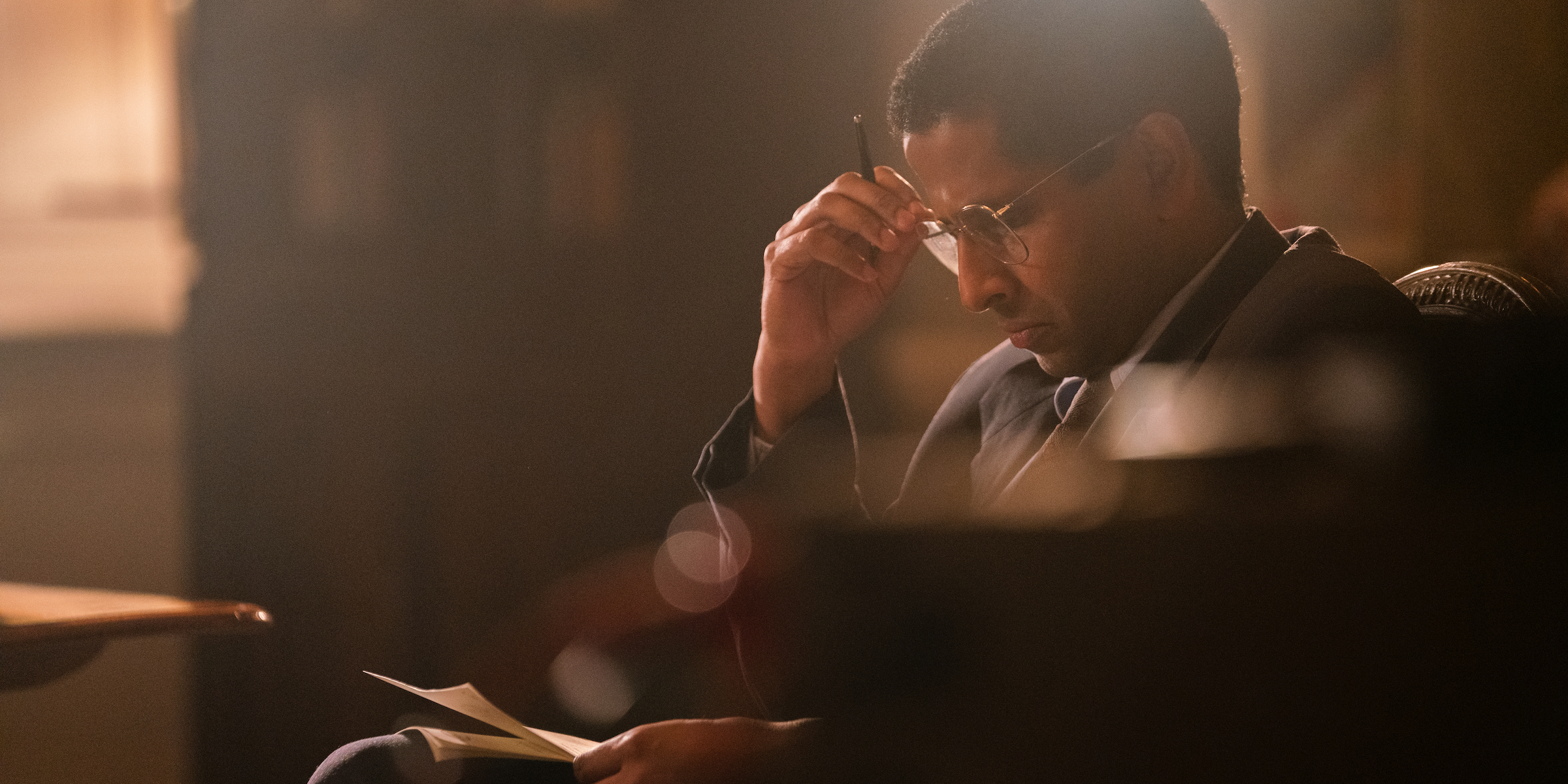From phone sex scandals between Charles and Camilla to scenes of a raging fire at Windsor Castle, the fifth season of The Crown, which dropped all its episodes on Netflix on Nov. 9, brought with it some of the most explosive storylines in the British monarchy’s modern history. Among them is the insidious real-life legacy of Princess Diana’s 1995 BBC Panorama interview with journalist Martin Bashir.
In the sit-down interview, Diana shared honest insights into her failed marriage with Prince Charles. Though scandalous in its own right, the interview garnered more criticism over time. The ethics and methods used by Bashir to secure the interview were labeled as “deceitful” decades later, in an independent inquiry in May 2021.
Upon the release of the Dyson Investigation, Prince William delivered a statement condemning the “extremely concerning” way the interview was obtained and how it played on Diana’s paranoia. “The interview was a major contribution to making my parents’ relationship worse and has since hurt countless others,” William added. He said that the interview lacked legitimacy and should not be aired again, adding that the “false narrative” has been “commercialized” by the BBC and others.
Prince Harry, meanwhile, cited the interview as “the ripple effect of a culture of exploitation and unethical practices [that] ultimately took her life.”
Below, what to know about the notorious interview.
What did Princess Diana say in her BBC Panorama interview?

Charles and Diana separated in 1992, but two years later, in June 1994, the Prince of Wales left audiences astonished when he admitted to an affair with Camilla Parker Bowles during a televised interview with Jonathan Dimbleby. Diana spoke openly about this for the first time with Bashir saying: “There were three of us in this marriage, so it was a bit crowded.” She also admitted her own affair with military officer James Hewitt.
Diana additionally touched on her mental health, noting her struggles with postnatal depression, bulimia, and self-harm. She said that she had struggled with media attention since the start of the marriage when she was 19 years old.
More controversially, the royal said she thought the monarchy would benefit from changes even if it was “frightening” for the institution, and that she believed the palace was working against her and interfering with her communications.
Nearly 23 million viewers tuned in to hear Diana speak on these matters. In the aftermath of the interview, the Queen reportedly wrote to Diana and Charles weeks later, urging them to seek a divorce—an event depicted in the latest season of The Crown.
Read More: In Season 5, The Crown Is Richer Than Ever—Despite a Disappointing Queen
How did Bashir get Diana to agree to the interview?
In Sept. 1995, Bashir presented fake bank statements to Diana’s brother, Earl Spencer, showing payments by a newspaper group to a former member of his staff to gain his confidence and get closer to the royal. He cemented this by showing payments made to Diana and Charles’ private secretaries.
The fake statements were unwittingly created by graphic designer Matt Wiessler, who conducted freelance work for the BBC. Wiessler maintains he did not know what the designs would be used for and he “stressed to Mr Bashir that this was a personal favour.” When Wiessler saw Diana’s interview air, he connected it to the bank statements and reported his concerns to the BBC.
This led to an investigation by Tim Gardam, then Head of Weekly Programmes in BBC News and Current Affairs, and two other BBC executives. Bashir admitted to forging the documentaries but lied and insisted that he did not show them to anyone. He then secured a letter signed by Diana saying that she had “no regrets” over doing the interview.
Garden accepted this as evidence until 1996, when swirling rumors led The Mail on Sunday to carry out further investigations which pressured Bashir into confessing that he had shown fake statements to Earl Spencer. An internal investigation concluded that Bashir’s dealings were fair but his material in the early stages breached BBC guidelines.
Today, these conclusions are seen as unjustified, largely due to the Dyson Investigation carried out by Justice of the Supreme Court, Lord John Anthony Dyson, more than two decades later.
What did the Dyson Investigation conclude?
More than 20 years on, Bashir’s practices were held to account. The Dyson Investigation was prompted by Earl Spencer’s allegations that Bashir showed him the fake documents to “groom” him and secure the royal interview, which he only received evidence of in Oct. 2020, due to papers released by the BBC as a result of a Freedom of Information (FOI) request. The investigation concluded that Bashir “lied and maintained the lie until he realized that it was no longer sustainable.”
It added that the internal inquiry was inadequate because Earl Spencer was not interviewed, which was a “big mistake.” Furthermore, it stated that the BBC covered up for Bashir and therefore “fell short of the high standards of integrity and transparency which are its hallmark”.
In response, Bashir apologized and called his forgery “a stupid thing to do” but insisted that it did not influence Diana’s decision to do the interview. Bashir resigned the week before the report was released, citing health issues. Meanwhile, the BBC issued letters of apology to Prince William and Harry, as well as Earl Spencer, and returned all awards the interview received including a 1996 BAFTA.
More Must-Reads from TIME
- Donald Trump Is TIME's 2024 Person of the Year
- Why We Chose Trump as Person of the Year
- Is Intermittent Fasting Good or Bad for You?
- The 100 Must-Read Books of 2024
- The 20 Best Christmas TV Episodes
- Column: If Optimism Feels Ridiculous Now, Try Hope
- The Future of Climate Action Is Trade Policy
- Merle Bombardieri Is Helping People Make the Baby Decision
Write to Armani Syed at armani.syed@time.com